Moradu.com
Do you know that your Chrome, Firefox, Internet Explorer or any other browser that you may be using could easily be disturbed by a program named Moradu.com? Moradu.com is a browser hijacker – an ad-generating piece of software, which may modify your browser’s search engine or homepage and initiate some advertising-oriented activities on your system.

What we refer to is a particular browsing disturbance, caused by an unstoppable generation of ads, banners, and pop-ups, as well as some unauthorized redirects, which may land you on unknown sponsored web pages. Moradu.com may often get installed on your computer along with some other programs, (mostly free software bundles) which you may download from freeware or shareware sites, some torrent platforms, free download links, email attachments or spam.
Although this type of software is normally not considered as a virus, it may still cause some issues to your PC, that’s why we generally would advise you to remove it. In the next lines, you will find some more details about the nature of the browser hijackers. At the end of the page, you will also find a free Removal Guide with two effective methods which can help you uninstall Moradu.com and remove all of its ads and imposed homepage or search engine changes. We encourage you to carefully read the information that follows and select the removal method that you are most comfortable with to save yourself from the hijacker’s invasion.
Muradu
As we just mentioned above, browser hijackers like Moradu, Web Navigator Browser, Best Deal For Life are pieces of software, which are basically considered harmless. They do not share the typical malicious features of a Trojan horse or Ransomware virus, and most importantly, they do not intend to do harm to your system.
Pieces like Moradu.com are developed with one aim and that is online advertising. The most disturbing and probably the most irritating thing that you may experience if such a browser hijacker enters your system is the unstoppable and uncontrollable advertising activities it may initiate. Moradu.com may generate and display hundreds of nagging pay-per-click ads, banners, new tabs, links and blinking boxes and make you click on them or redirect you to certain sponsored web pages. The idea behind these actions is to bring traffic and Pay-Per-Click revenue to its owners, which could be marketers, online advertisers, or software developers. This is a common online advertising practice, which is not considered illegal, however, the users who are forced to endure it may suffer a significant disturbance in their normal web browsing. The quality of their searches may decrease, more so since the hijacker may frequently redirect them to unknown web pages with content, the safety of which may not be proven.
Most security experts generally consider the browser hijacker to be potentially unwanted because of the potential interaction with malware transmitters. Basically, if a program like Moradu.com is constantly generating various sketchy ads and redirecting you to web locations you don’t know, the risk of clicking on some misleading link or potentially harmful ad may significantly increase. The fact that you don’t have control over your browser and your search results, which may get manipulated by an imposed search engine or homepage, may eventually lead to the contamination with a nasty virus, a Trojan horse or even worse – a Ransomware infection. It is really not necessary to take such a risk and, fortunately, it can easily be eliminated if you uninstall the browser hijacker from your PC.
Can you prevent browser hijackers?
Advertising software such as browser hijackers, adware and other ad-generating pieces are commonly spread all over the Internet. Most of these programs are legally distributed via free download pages, the official websites of their developers, free installers, emails, torrents, and most commonly via software bundles. That’s why, in order to prevent them, you need to carefully watch what web content you come across and what you install on your computer. Only the Advanced/ Manual installation settings allow you to have a full control over given software package, that’s why our advice is to make sure you always choose them over the Quick/ Automatic ones. Also, do not neglect the importance of having reputed security software on your system. In many cases, it is able to detect potentially unwanted programs and notify you about them in case that you skip informing yourself. The professional Moradu.com removal tool is also excellent software, which can help you remove the browser hijacker and uninstall all of its imposed browser components from your PC. We encourage you to run a full system scan with it or use the instructions in the Removal Guide below if you prefer the manual removal method.
SUMMARY:
| Name | Moradu.com |
| Type | Browser Hijacker |
| Danger Level | Medium (nowhere near threats like Ransomware, but still a security risk) |
| Symptoms | A new homepage or search engine may get installed on your default browser, browser redirects might occur. |
| Distribution Method | Free download pages, the official websites of software developers, free installers, emails, torrents, and most commonly via software bundles. |
| Detection Tool |
Some threats reinstall themselves if you don’t delete their core files. We recommend downloading SpyHunter to remove harmful programs for you. This may save you hours and ensure you don’t harm your system by deleting the wrong files. |
Remove Moradu.com
If you have a Windows virus, continue with the guide below.
If you have a Mac virus, please use our How to remove Ads on Mac guide.
If you have an Android virus, please use our Android Malware Removal guide.
If you have an iPhone virus, please use our iPhone Virus Removal guide
![]()
Some of the steps will likely require you to exit the page. Bookmark it for later reference.
Reboot in Safe Mode (use this guide if you don’t know how to do it).
![]()
WARNING! READ CAREFULLY BEFORE PROCEEDING!
Press CTRL + SHIFT + ESC at the same time and go to the Processes Tab (the “Details” Tab on Win 8 and 10). Try to determine which processes are dangerous.
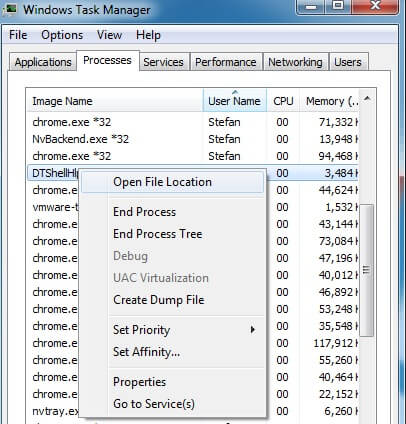
Right click on each of them and select Open File Location. Then scan the files with our free online virus scanner:

After you open their folder, end the processes that are infected, then delete their folders.
Note: If you are sure something is part of the infection – delete it, even if the scanner doesn’t flag it. No anti-virus program can detect all infections.
![]()
Hold together the Start Key and R. Type appwiz.cpl –> OK.
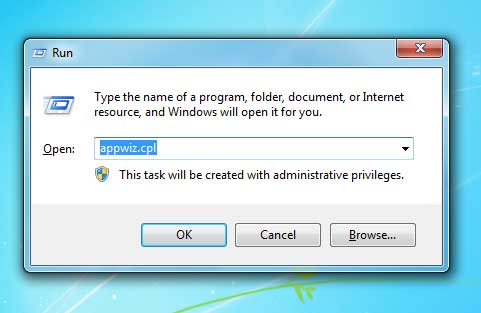
You are now in the Control Panel. Look for suspicious entries. Uninstall it/them.
Type msconfig in the search field and hit enter. A window will pop-up:
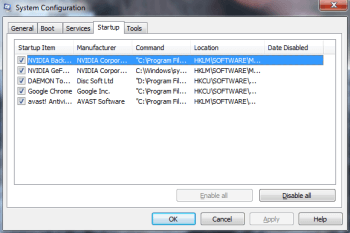
Startup —> Uncheck entries that have “Unknown” as Manufacturer or otherwise look suspicious.
![]()
Hold the Start Key and R – copy + paste the following and click OK:
notepad %windir%/system32/Drivers/etc/hosts
A new file will open. If you are hacked, there will be a bunch of other IPs connected to you at the bottom. Look at the image below:
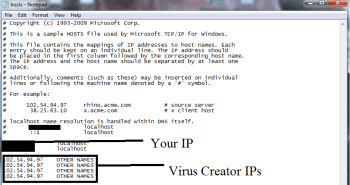
If there are suspicious IPs below “Localhost” – write to us in the comments.
Open the start menu and search for Network Connections (On Windows 10 you just write it after clicking the Windows button), press enter.
- Right-click on the Network Adapter you are using —> Properties —> Internet Protocol Version 4 (ICP/IP), click Properties.
- The DNS line should be set to Obtain DNS server automatically. If it is not, set it yourself.
- Click on Advanced —> the DNS tab. Remove everything here (if there is something) —> OK.
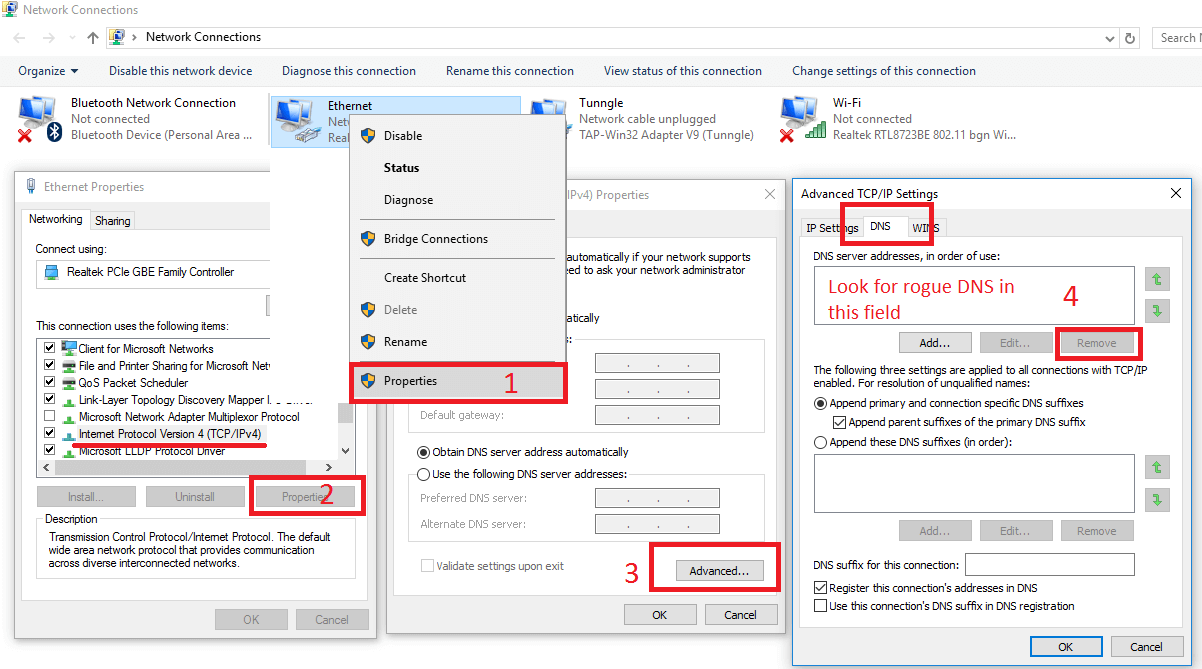
![]()
- After you complete this step, the threat will be gone from your browsers. Finish the next step as well or it may reappear on a system reboot.
Right click on the browser’s shortcut —> Properties.
NOTE: We are showing Google Chrome, but you can do this for Firefox and IE (or Edge).
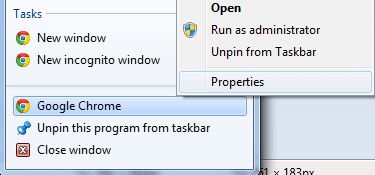
Properties —–> Shortcut. In Target, remove everything after .exe.
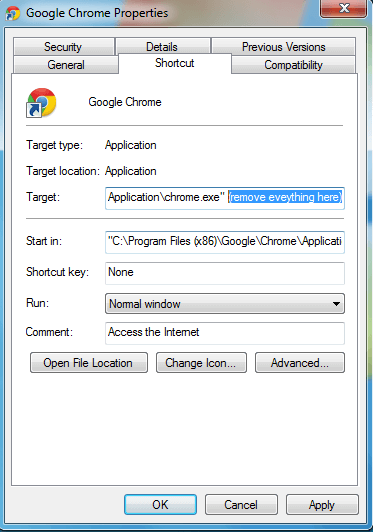
![]() Remove Moradu.com from Internet Explorer:
Remove Moradu.com from Internet Explorer:
Open IE, click ![]() —–> Manage Add-ons.
—–> Manage Add-ons.
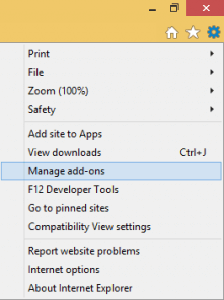
Find the threat —> Disable. Go to ![]() —–> Internet Options —> change the URL to whatever you use (if hijacked) —> Apply.
—–> Internet Options —> change the URL to whatever you use (if hijacked) —> Apply.
 Remove Moradu.com from Firefox:
Remove Moradu.com from Firefox:
Open Firefox, click ![]() ——-> Add-ons —-> Extensions.
——-> Add-ons —-> Extensions.

 Remove Moradu.com from Chrome:
Remove Moradu.com from Chrome:
Close Chrome. Navigate to:
C:/Users/!!!!USER NAME!!!!/AppData/Local/Google/Chrome/User Data. There is a Folder called “Default” inside:

Rename it to Backup Default. Restart Chrome.
![]()
Type Regedit in the windows search field and press Enter.
Inside, press CTRL and F together and type the threat’s Name. Right click and delete any entries you find with a similar name. If they don’t show up this way, go manually to these directories and delete/uninstall them:
- HKEY_CURRENT_USER—-Software—–Random Directory. It could be any one of them – ask us if you can’t discern which ones are malicious.
HKEY_CURRENT_USER—-Software—Microsoft—-Windows—CurrentVersion—Run– Random
HKEY_CURRENT_USER—-Software—Microsoft—Internet Explorer—-Main—- Random
If the guide doesn’t help, download the anti-virus program we recommended or try our free online virus scanner. Also, you can always ask us in the comments for help!

Leave a Reply